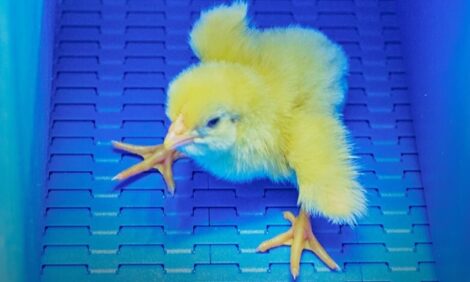



Mexico's Ministry of Ag says the consumption of chicken meat and eggs is safe
Mexico's Ministry of Agriculture and Rural Development works with the national poultry industry to guarantee healthy and safe food to the population- Mexico's Ministry of Agriculture and Rural Development works with the national poultry industry to guarantee healthy and safe food to the population.
- Senasica carries out epidemiological surveillance actions and promotes biosecurity in poultry farms among producers to preserve the supply of healthy and safe poultry products.
- Low pathogenicity avian influenza A H5N2 is a disease present in Mexico since the 1990s and its presence has not compromised the supply of chicken meat and eggs.
- Agriculture operates the National Campaign against Notifiable Avian Influenza, with the purpose of eradicating it and preserving the production and supply of protein of poultry origin.
With the purpose of protecting the country's poultry meat and egg production, Mexico's Ministry of Agriculture and Rural Development operates health campaigns and promotes safety programs, with which it is possible to make sufficient healthy poultry products available to the population of Mexico.
Avian influenza is caused by viruses of the genus Influenza virus A, which is widely distributed among wild birds without causing significant problems. However, under certain conditions, they can infect poultry that may not become ill, may have a mild clinical picture, or may become severely ill.
Low-pathogenic avian influenza A H5N2 is a disease present in Mexico since the 1990s; however, its presence has not compromised the supply of chicken meat and eggs.
The National Agri-Food Health, Safety and Quality Service (Senasica) operates the National Campaign against Notifiable Avian Influenza, with the purpose of eradicating it and preserving the production of protein of poultry origin to supply national demand, mainly for chicken meat and eggs.
Through the campaign, epidemiological surveillance actions are carried out in poultry production units (UPA), backyard properties, slaughterhouses, Federal Inspection Type establishments and collection centers for birds and poultry products.
Currently, with the support of the productive sector, more than 82% of the country's poultry production units have proof of current biosafety, which means that they operate health protocols for people who enter the UPA; they wash and disinfect vehicles; they use sanitary mats at the main entrance and in each house. In addition, they check the flock daily to detect birds with clinical signs suggestive of avian influenza.
Also, they carry out adequate management of excreta and organic waste. They periodically wash and disinfect facilities, materials and equipment. They consider a period of sanitary vacuum between each production cycle and implement procedures for the control of wildlife and elimination of harmful fauna, such as the placement of bird nets.
As a result of these measures, the states of Baja California, Baja California Sur, Campeche, Colima, Chihuahua, Quintana Roo, Sinaloa, Sonora, Tabasco, Tamaulipas and Yucatán are Zones Free of the disease, while the rest of the entities have a low prevalence zoosanitary status.
Senasica, through the General Directorate of Animal Health (DGSA), coordinates at the central and state level the active and passive epidemiological surveillance program in poultry farms, backyard properties, wild and migratory birds.
From 2022 to 2024, the direction of the Mexico-United States Commission for the Prevention of Foot and Mouth Disease and other Animal Diseases (CPA) of the DGSA generated a total of 22,861 investigations for the surveillance of the disease throughout the Mexican Republic, with greater attention to highly productive poultry areas.
In order to maintain permanent contact with the population, poultry farmers and veterinary doctors, the organization makes available various channels to notify any suspicious case with signs suggestive of avian influenza, such as the emergency telephone number 800 751 2100, the “Avise” application; the Whats App of the CPA 55 3996 4462 or that of Senasica 55 4940 6919, which can be accessed for free, 24 hours a day, 365 days a year.








